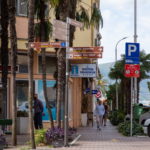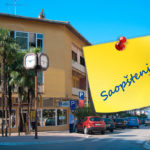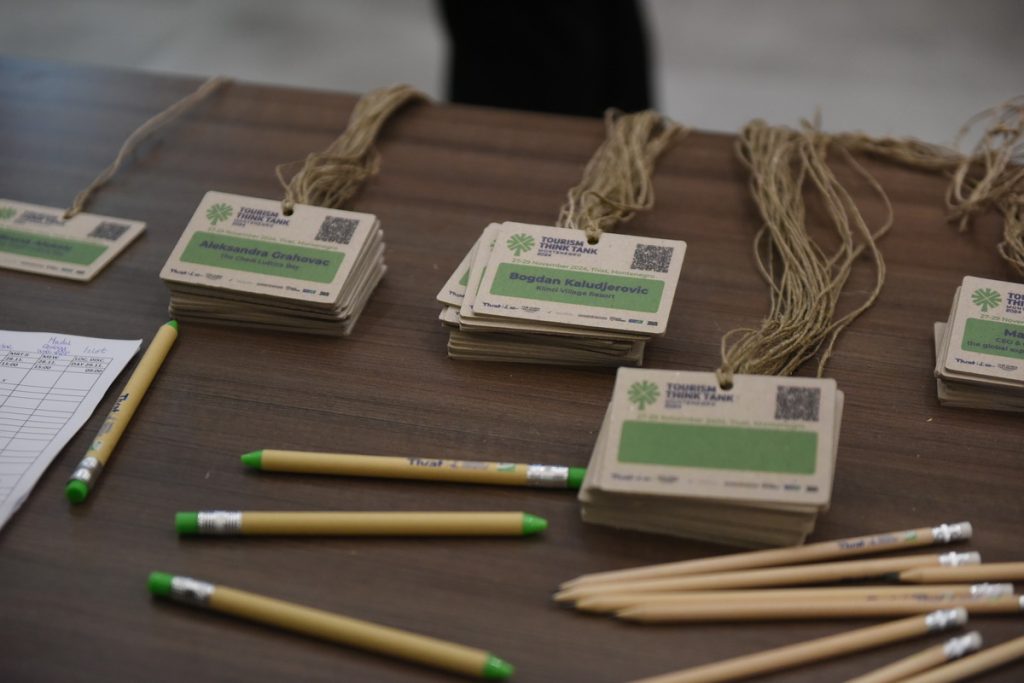
Tourism Thank Tank 2024 – Regeneration for the Region
In November, we ran the third annual edition of this international educational-experiential event, an exceptional get-together for the region and beyond, with hand-selected topics to get on the top of issues that are moving, shaking and changing tourism locally and globally.
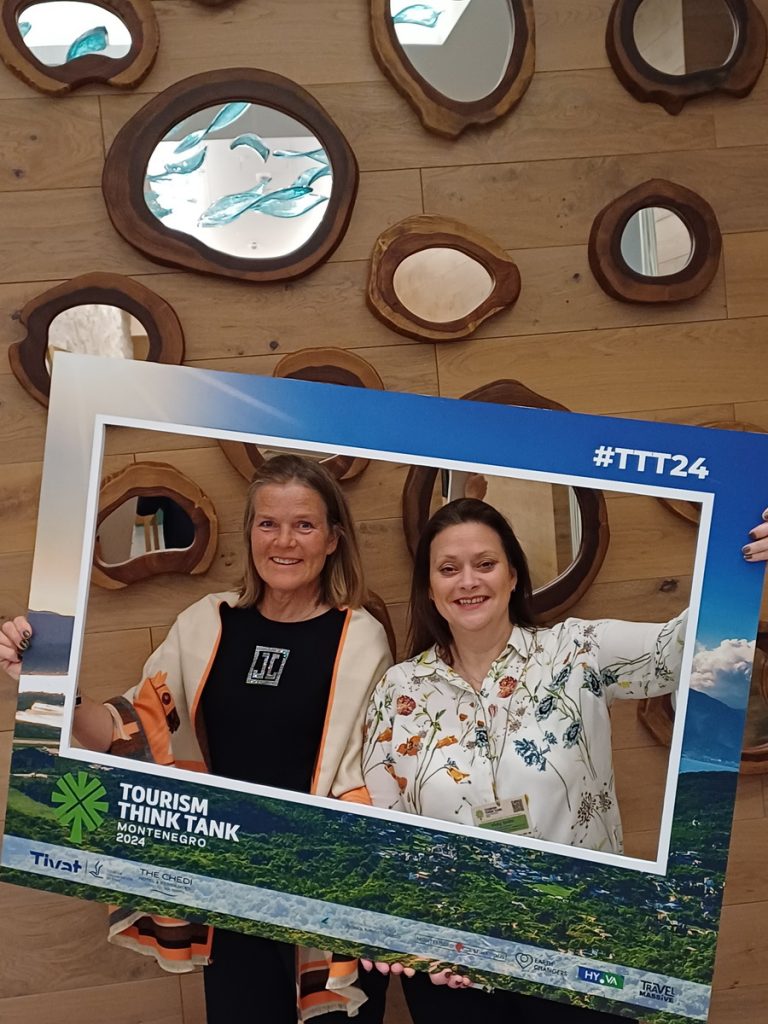
DAY 1 – 27th November, 2024
Doug Lansky, our dynamic, engaging keynote speaker, kicked off talking to us through a whirlwind of Redefining Tourism Success. You really had to be there! (not least because he doesn’t make content public outside of the event). We’re not sure there’s anyone else who makes the question, ‘can we do something locals and visitors appreciate more, and is better for locals income and environment?’ so fun, funny and engaging.
Why would anyone not want that? More visitors does not necessarily equal more money; in fact, it can often equal less money if you let it go too far. But we do the obvious, where we need to do things differently. Human nature settles in its comfort zone.
Doug got us thinking outside the box on how we can be smarter, more creative, and avoid the ‘ECG of someone with a bad heart condition’ graph of tourism development. We capture data, but where does it go? Do we develop solutions, only for unintended consequences to kick in? Are we really analysing properly to understand the issues to fix? Do we offer inspiring attractive careers?

Doug spoke from mountain tourism to maths equations and markets in Brooklyn, through The Great Wall and Chinese, Russians, casinos, Wisconsin attractions, broken elevators, car bumps, Delhi-Agra motorway, smartphones, Swedish ‘hemmablind’, counting fs, overtourism (critique from India!), supply chain logistics, ‘moneyballing’, destination duplication, chain hotels, contradictory cruise ship names, ironic slogans, beautiful logos, AI fake humans, guest services, service recovery, rice boats, ice hotels, accessible beaches, emailing dogs, Northern Lights, nightclub queue management, to Not-Zero, giving people what they want rather than what the locale needs…
From forced engineered compliance to not just selling the benefits, but being unique. Opening minds to trying and testing new stuff: You need to figure out your thing and be transparent. In tourism product development, limiting and de/marketing, branding, messaging, consumer engagement, sustainability practices and impact – all small steps in the right direction, that won’t solve everything but will progress forever.
A keynote with Doug is certainly a whistle-stop around the world of sustainable tourism development like no other. If you haven’t experienced it, or if you have, be sure to follow his channel for snippets – Rethinking Tourism
A change of tone followed with Professor Emeritus Dr. Harold Goodwin and the weighty subject of regulations with Navigating the Green Horizon: Directions for Responsible Tourism After COP29 and EU Anti- Greenwashing Initiatives which you can watch here: https://www.youtube.com/watch?v=yk2ffvnwyhU
Professor Goodwin highlighted the COP process as criticised for being no longer being fit for purpose, though its first Tourism Day highlighted the need for Enhanced Climate Action in Tourism, with 52 countries and 8 non-state actors endorsing the proposals.
Harold highlighted how current certification schemes for sustainable tourism are plagued by issues of opacity, lack of enforceability, and the plethora of confusing schemes that fail to report actual achievements in reducing negative impacts or increasing positive ones, but rather focus on awarding effort over impact.
He identified greenwashing as a significant threat, undermining consumer confidence and allowing false claims of environmental performance. The European Commission's findings that 53% of environmental claims in the EU were vague, misleading, or unfounded underpin this issue. To address this, the proposed Green Claims Directive requires companies to substantiate their environmental claims with scientific evidence, life-cycle perspectives, and transparent reporting.
Professor Goodwin advocates for a new generation of verification (Certification 2.0) that is transparent, enforceable, and meaningful, allowing consumers to make informed choices based on actual performance metrics such as water consumption and labour standards. This approach would empower consumers, protect them from greenwashing, and genuinely promote sustainable tourism practices.
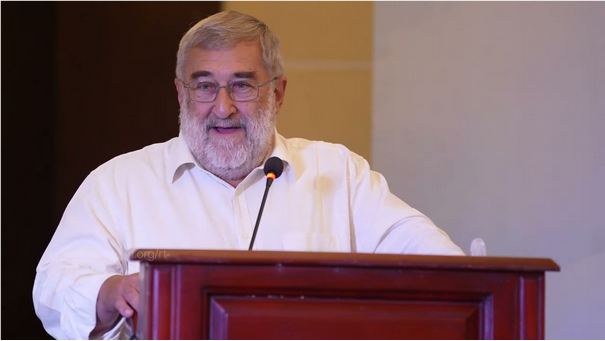
The discussion continued to a panel including Professor Harold on Anti-Greenwashing and The EU Green Claims Directive, its Impacts and Consequences on Businesses, Certification Market and Consumers.
Dr. Renée Wagner, Corporate Director of ESG and Quality Management, Orascom Hotels Management AG is an ESG expert with passion, coming from the international hospitality field. Currently working for Orascom Hotels Management – one of the biggest hotel owners and operators in the MENA region, with more than 8,000 guestrooms dispersed across Egypt, Oman the UAE, Montenegro and Switzerland, including the Chedi hotels.
Baptiste Carriere-Pradal, BCG Senior Advisor is a prominent figure in the field of tourism sustainability and certification, particularly known for his work on EU, regulatory standards and anti-greenwashing, with personal involvement working on his family organic and agroforestry wine estate in Southern France.
Dr. Ioannis Pappas is the Global Sustainable Tourism Council’s Director, Mediterranean, Lead Assessor for Destinations, Approved Trainer and Assessor in South East Europe, and consultant for sustainable tourism certification standards. The EU's new Directive aligns with the GSTC's goals of promoting genuine sustainability and transparency in the tourism industry.
Whilst the EU Directive or member states laws are not yet set, clear from the panel was the importance of standardized metrics and methodologies for measuring sustainability, promoting transparency, accountability, and verifiable sustainability practices to ensure credibility of sustainability claims – regardless of location of product, if marketing to EU guests.
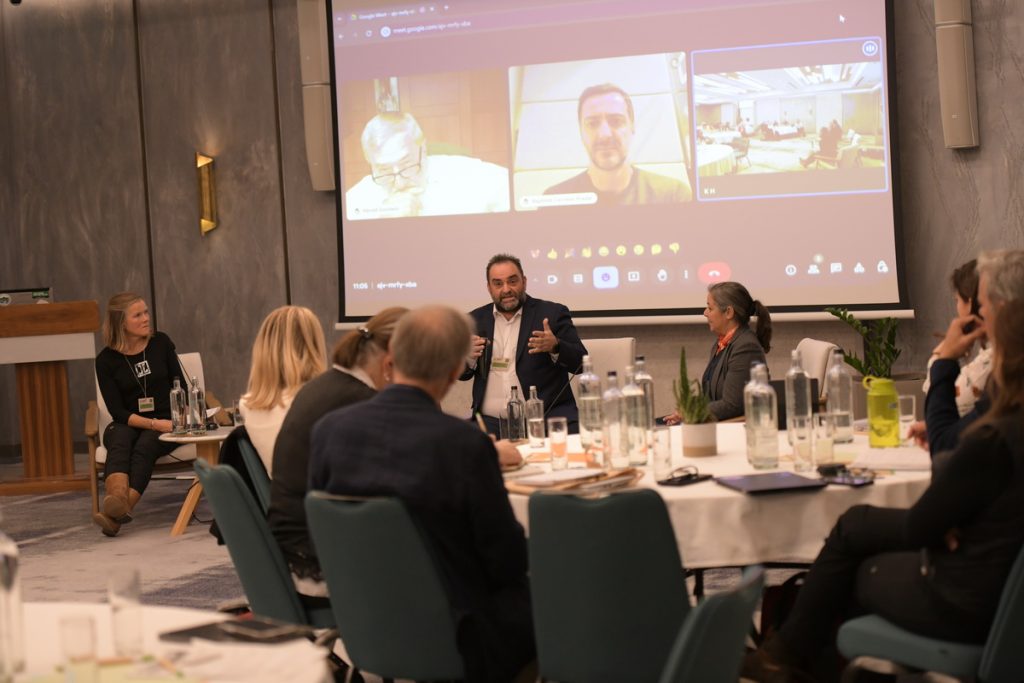
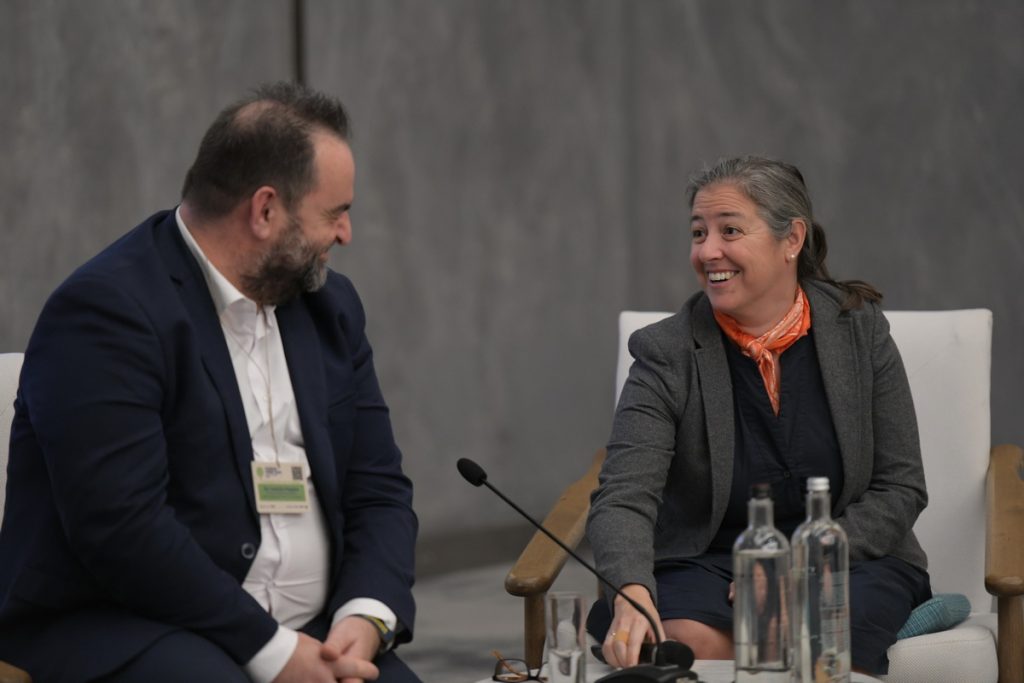
Taulant Hoxha, in his role as the CEO of the newly established High Scardus Trail DMO, was Navigating the Future of Travel: Cross-Border Guiding, Adventure Tourism, and Sustainability in the Western Balkans focusing on the Trail between Kosovo and North Macedonia. He highlighted the region's cultural diversity and untapped potential for cross-border tourism, while addressing challenges such as regulatory complexities, need for better advocacy for guides, as well as lack of harmonisation of actions between local/central institutions and people in the field. Emphasising the rise of conscious travelers, he advocates for ecotourism training, community engagement, and responsible practices, including the importance of wildlife protection and animal welfare. Among the main strategies for the future Taulant sees the need for a regional guiding agenda.
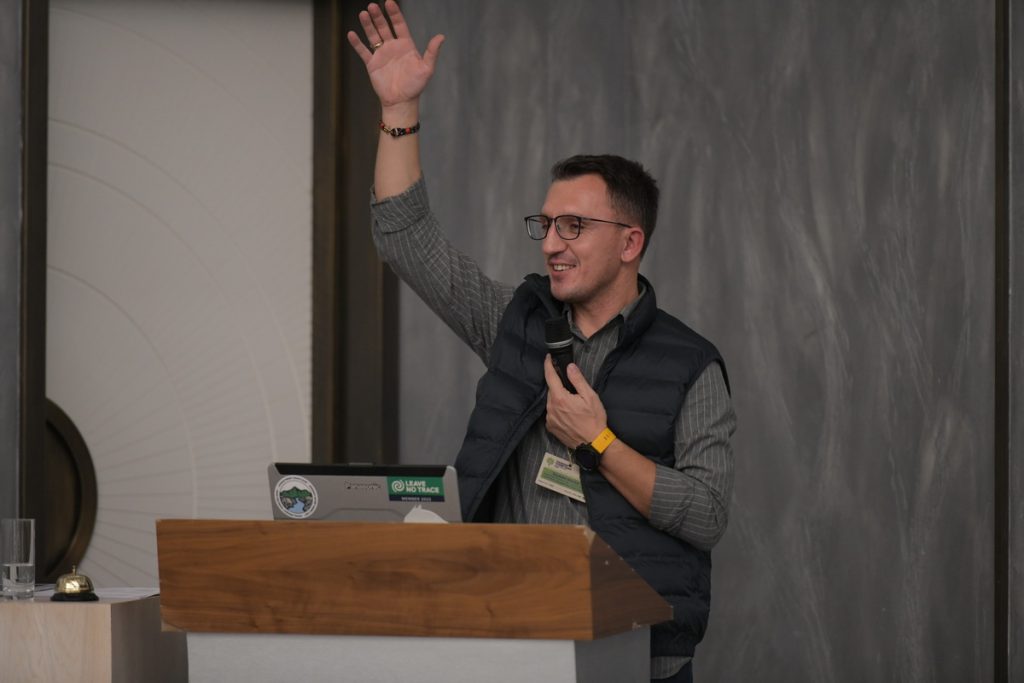
The subsequent panel asked “Quo vadis (where are you going?) – Destination Management in the Western Balkans?”. The panelists Danica Banjevic, Minja Surlan and Taulant Hoxha shared their different experiences, good practices and challenges in engaging their local communities in a sustainable destination management development and monitoring framework, as was started in Tivat with the systematic approach of Green Destinations.
The tasks strongly evolving from marketing towards management of visitor source markets, diversification of seasons and products partly gives an answer to the “two conflicting business models” as presented by Doug Lansky in his keynote. The joint-biggest problem in the region turned out to be politics replacing professionalism.
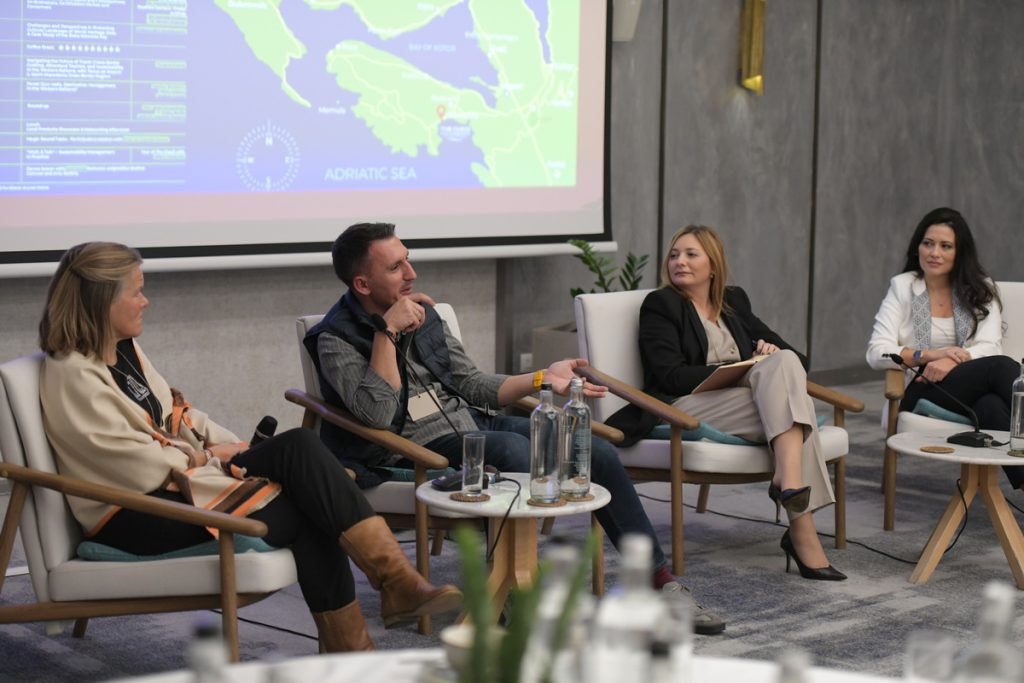
Connected with that, Aleksandra Kapetanović of EXPEDITIO, serving sustainable spatial development since 1997 presented Challenges and Perspectives in Protecting Cultural Landscape of World Heritage Sites – A Case Study of the Boka Kotorska Bay.
She described the main problems: Excessive urbanisation threatening the UNESCO protected area's cultural integrity, e.g. with the number of apartments increasing from 13,516 in 2011 to 17,092 in 2023. Tourism development has turned to overtourism, with 236,546 tourist arrivals and 432 cruise ships in 2023, pouring masses into the old town with only ca. 960 inhabitants and also causing environmental problems.
The region faces clear challenges of maintaining authenticity, preserving traditional structures, and protecting the local community's quality of life. The presentation proposes several strategic solutions. These include managing visitor numbers and cruise ship traffic, improving infrastructure, and involving the local community in decision-making processes.
There's a crucial need to develop an integrated management system that protects the area's Outstanding Universal Value while balancing tourism development. The goal is to follow responsible tourism success principles: protecting locals’ quality of life, maximizing local economic impact, elevating visitor experience, and protecting the key cultural landscape assets.
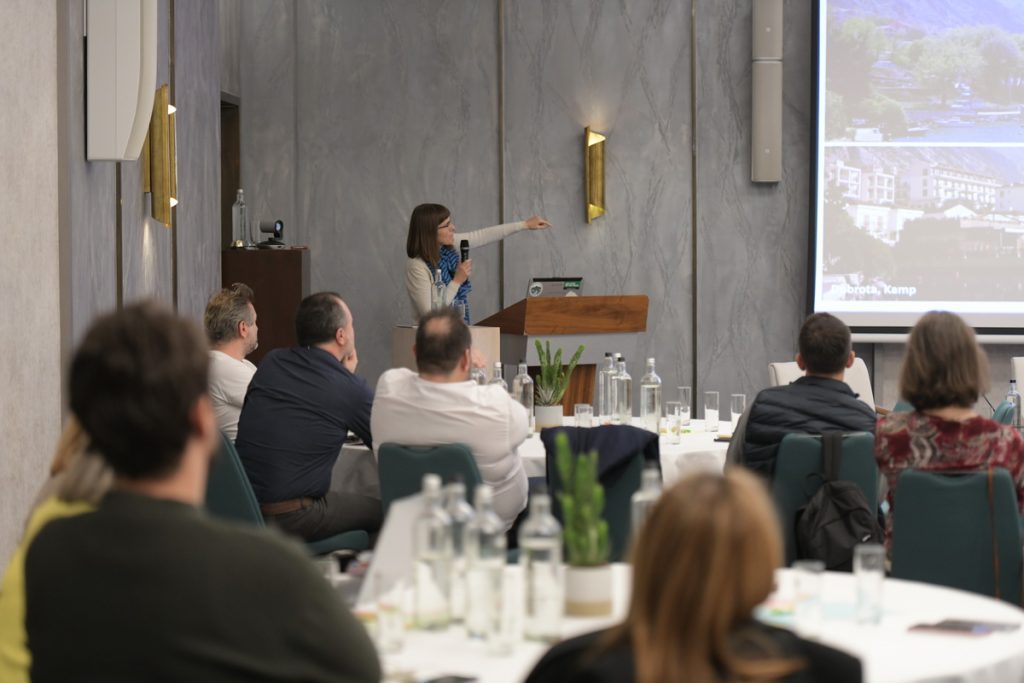
The 2023 GSTC Assessment of Kotor gives a detailed picture of the situation – published only four weeks before TTT24, led by one of our panelists, Dr. Ioannis Pappas. So far the outcomes and necessary actions have not been discussed publicly, but the full report can be downloaded here: https://www.gstcouncil.org/destination-assessment-city-kotor/
In the sunny afternoon, local artisans had set up a colourful showcase of their products:
High quality red wine and prosciutto from his farmhouse and winery in Herceg Novi was served by Branko Palikuca. Melita Ramljak Ciko and Tatijana Radonic from Tivat came with colourful handmade jewellery and small souvenirs. Zizela Markovic of the Farmhouse Pony Art Garden on Luštica had brought her olives, olive oil, excellent jams and more. Marija Cimbaljevic introduced domestic honey and beautiful hand made souvenirs from her village household in Grbalj, Kotor.
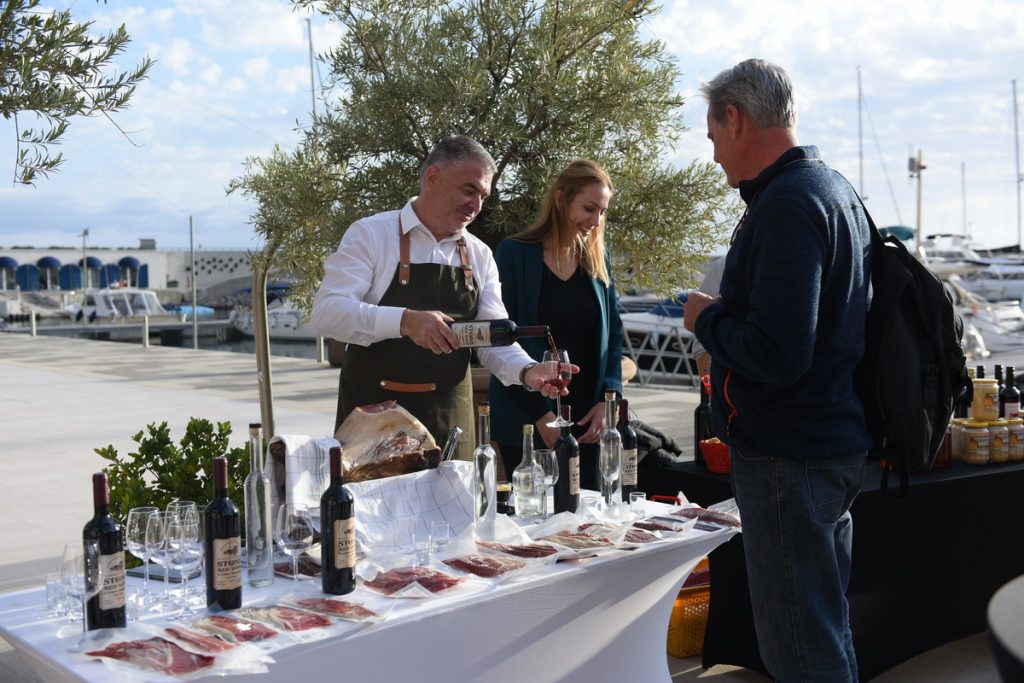
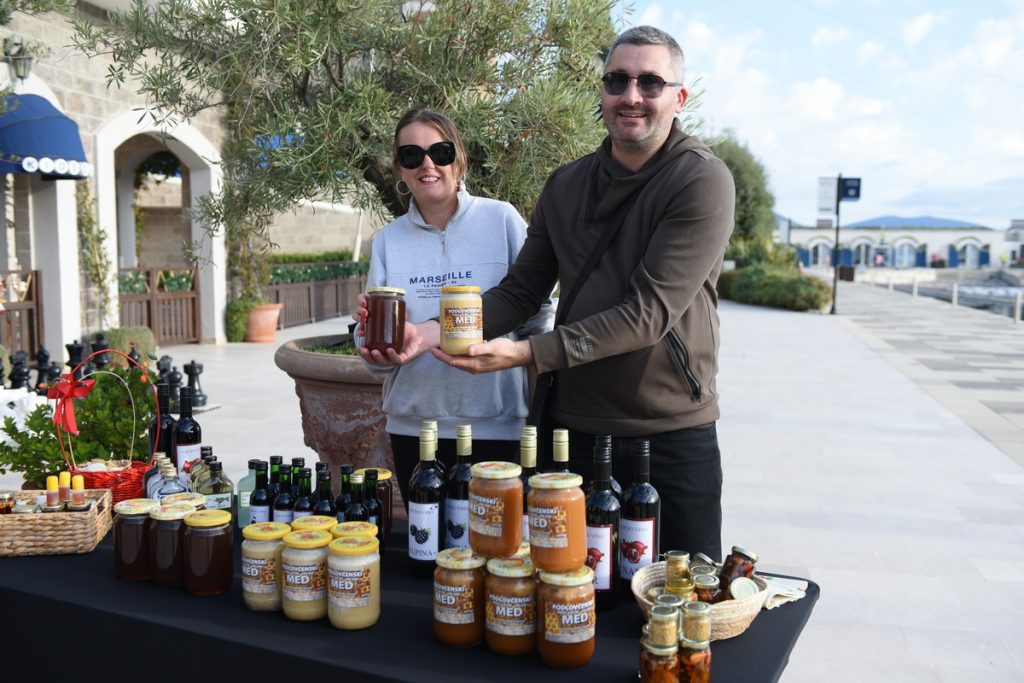
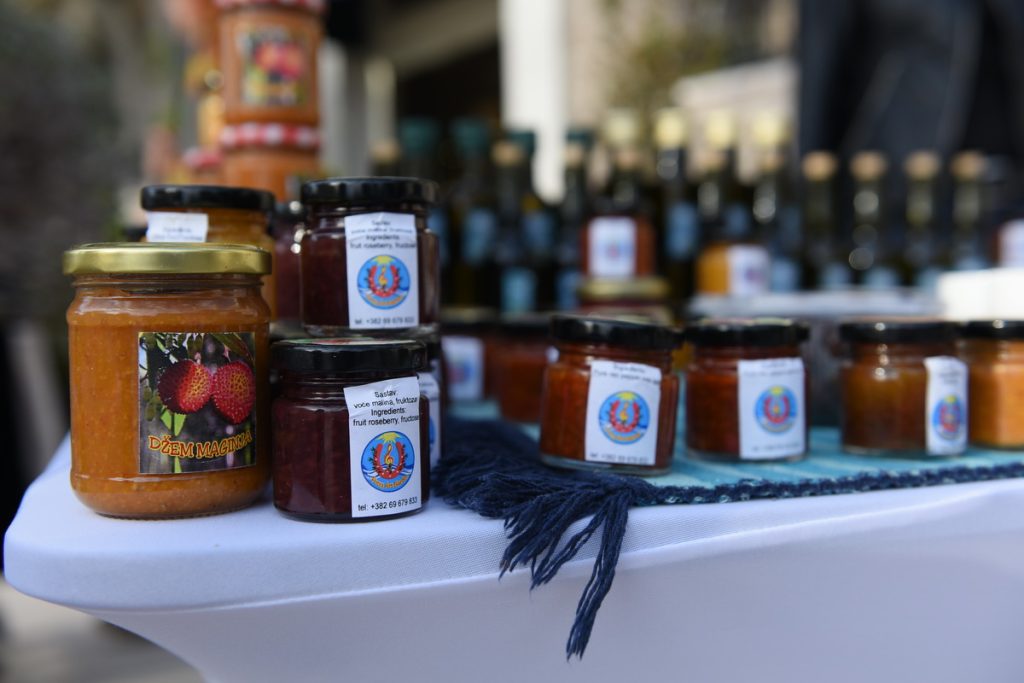
The late afternoon and early evening hours of Day 1 were dedicated to good communication, networking, practice, learning and fun!
A “Magic Round Table” was held, further to the popularity of 2022’s, joined by twenty of the event participants and led by Prof. Dr. Claudia Brözel. This is an open, moderated discussion with defined rules to surface and understand motivations, experiences, images, feelings and thoughts and develop shared visions. By actively and openly listening and speaking, removing the separation between speaker and listener, the space is created in which ideas can develop.
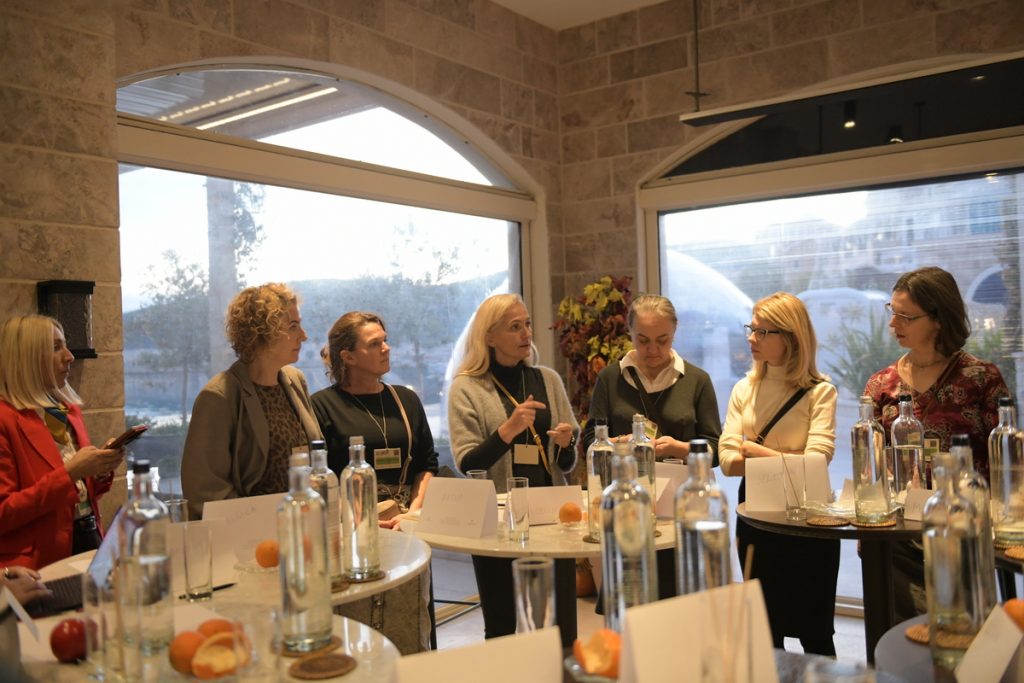
The discussion was wide-ranging, starting with changing mentality from short-term to long term: this is felt a key handicap which also devalues tourism, when stats don’t communicate value either. How can we build value, education, build in measures to minimise damage? Who decides? There is no progress in healing the Balkans while politicians argue over words, and there are no incentives in workplaces.
It was agreed it has to start with education of children, with open minds and a critical mass for change. Kids teach parents sustainability! Which means starting with the school system and curriculum.
In a now more capitalist society, many have not had opportunities to learn differently yet. Systematic change is required and has started. But is this transition period where it has broken down? There’s no formal development programmes for youth, like volunteering. Can we create that in activism, planting trees, picking olives, school exchange programmes, study visits?
Digital nomads are coming anyway, to work – and pay for the privilege. How do we take lessons from the private sector to the public sector, which is stuck in limited NGO-thinking? It shouldn’t be ‘grants for guesthouses’ which are then just used as private residences.
Adults need training and support too – life-long learning. Then we develop quality tourism, not just quantity. You can’t be luxury quality these days without sustainability. But what does this mean to the community? We need to get round the fire and discuss, start small and spread, with common platforms for common interests – for Western Balkans as a region. How do we increase cooperation, communication and connectivity?
Can we start developing a community? Determine a baseline and immediate short term actions?
We listened, and we start small – join our LinkedIn community here to keep an eye out for future get togethers, actions and potential full event report: https://www.linkedin.com/company/tourism-thinktank
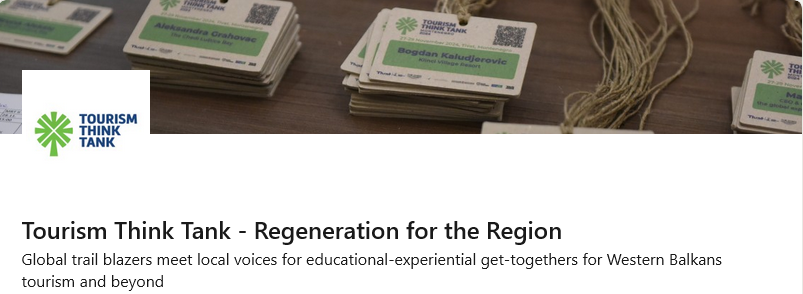
During the “Walk & Talk” with Milica Jankovic, the Director of Sustainability and Housekeeping at The Chedi Luštica Bay explained her strategic and operational work with the Green Team in sustainability management – of which the positive details and results became very evident during our stay. Not just the obvious, but also creative, delightful, softly educational and impactful ideas. We warmly recommend you learn more here – https://www.chedilusticabay.com/sustainability go, stay at The Chedi, and open your eyes. Plus, sharing is caring, e.g. via https://adriaticgreenhub.com/
Apart from recognition and awards by Zero Waste Europe and the Great Hotels of the World for excellence in waste reduction and management, The Chedi has been Green Key International and EarthCheck Certified within the first year of integrating sustainability principles into operations, plus awarded as Sustainability Leader by The Leading Hotels of the World.
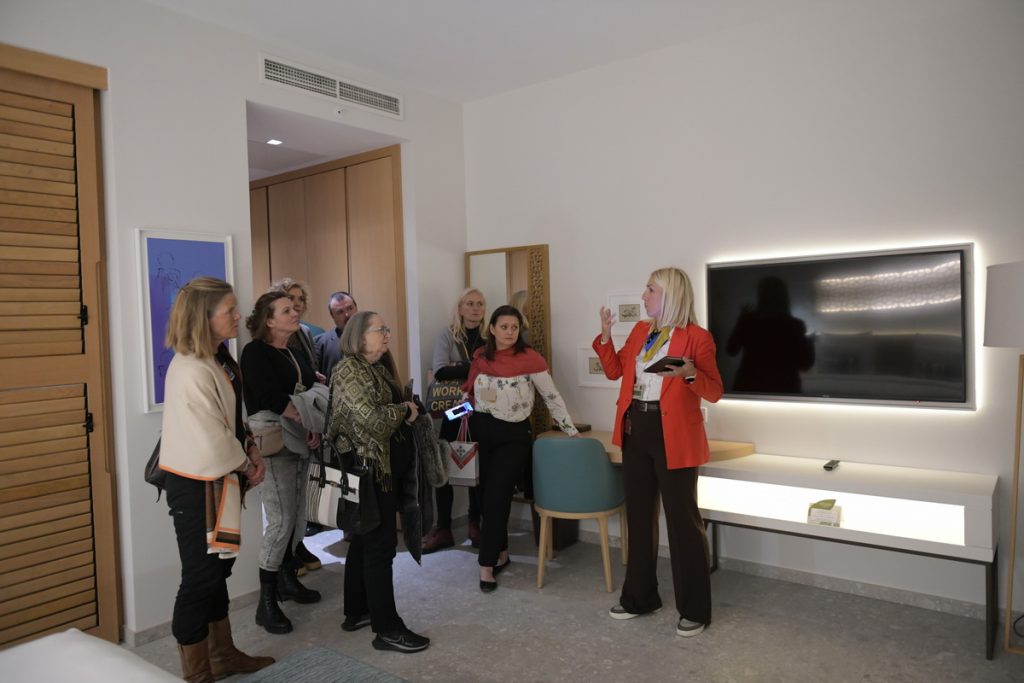
Last and surely not least on Day 1 we enjoyed with the Cultural and Arts Society of Tivat, KUD Boka (Kulturno umjetničko društvo) a very interesting and engaging workshop about the Boka intangible heritage, followed by a lesson of local traditional dances and Montenegrin music instruments. KUD Boka, lead by Vidak Bozovic, has currently ca. 300 members across generations, trains twice a week and performs regularly, also abroad.
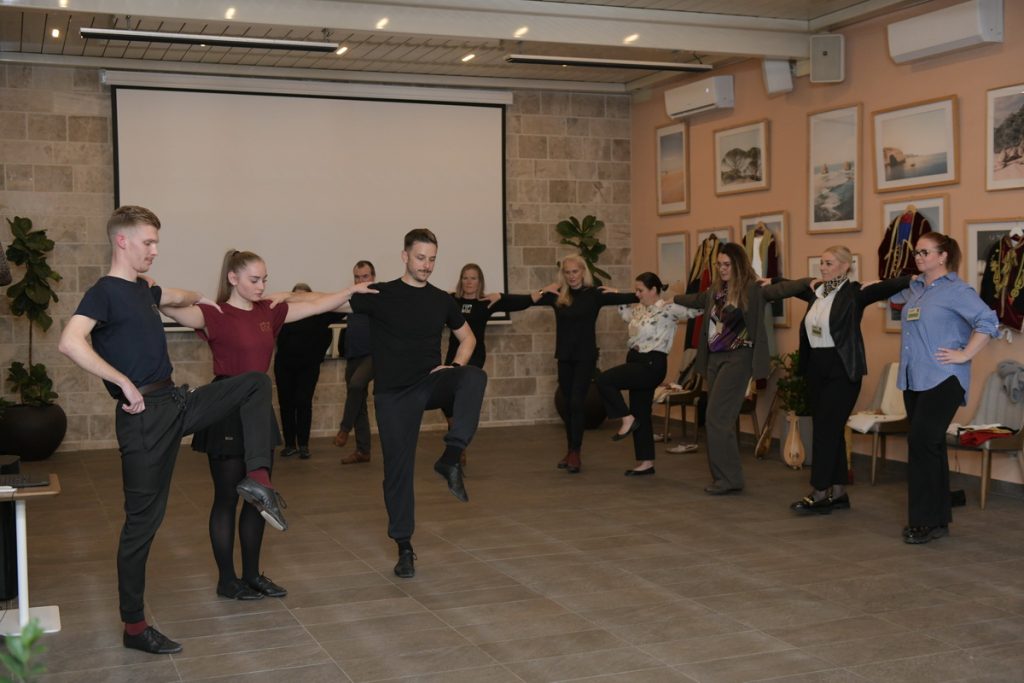
DAY 2 – 28th November, 2024
In her presentation on Opportunities for Destinations and Businesses in the Western Balkans, Marlène Bartes, Tourism Policy Officer in the Directorate-General for Internal Market, Industry, Entrepreneurship & SMEs (DG GROW) of the European Commission emphasised the strategic focus on transforming tourism through digital and green initiatives.
She recommended that stakeholders strengthen sustainable tourism development by fostering knowledge sharing and utilizing digital tools. Marlene highlighted the importance of collaborative governance among destinations to enhance the overall tourism experience. Her key priorities include support to SMEs, improving digital skills among industry professionals, promoting sustainable mobility options, and ensuring accessibility in tourism services across EU member states – and the current candidates.
By implementing these strategies, she believes the sector can thrive while addressing environmental challenges and meeting the evolving needs of travelers. Her presentation includes among other things the Guide on EU funding for tourism (europa.eu) as well as links to current projects, best practices, guides and tools that are free to use, and the “one stop shop” for everything tourism related: https://transition-pathways.europa.eu/tourism.
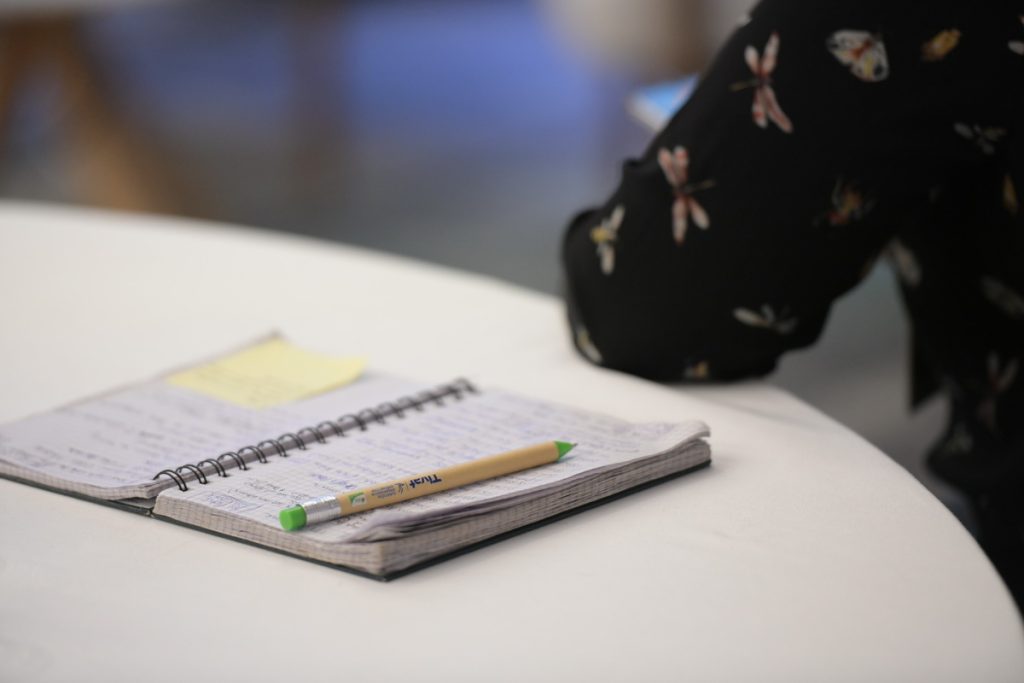
Georgios Emmanouil, Policy Officer in the DG REGIO Unit D.1 Macroregions, Transnational / Interregional / Cooperation and Enlargement, presented updates on the The EU Strategy for the Adriatic and Ionian Region (EUSAIR) Action Plan towards 2030, highlighting a new pillar on ‘Improved Social Cohesion’ and the integration of Western Balkans enlargement across all pillars.
Georgios recommended actions to promote digital and green transitions within the tourism sector, urging regional and national strategies to align with EUSAIR by 2025. He stressed the significance of collaboration among stakeholders to enhance sustainability in the region, emphasizing the importance of diversifying tourism, supporting SMEs, and leveraging EU funding for development projects. He also underlined the need for upskilling and reskilling the workforce in green, digital, and social skills through large-scale partnerships and EU programs. He presented e.g. all specific objectives selected by Interreg IPA CBC programmes 2021-2027. For more information: https://www.adriatic-ionian.eu/
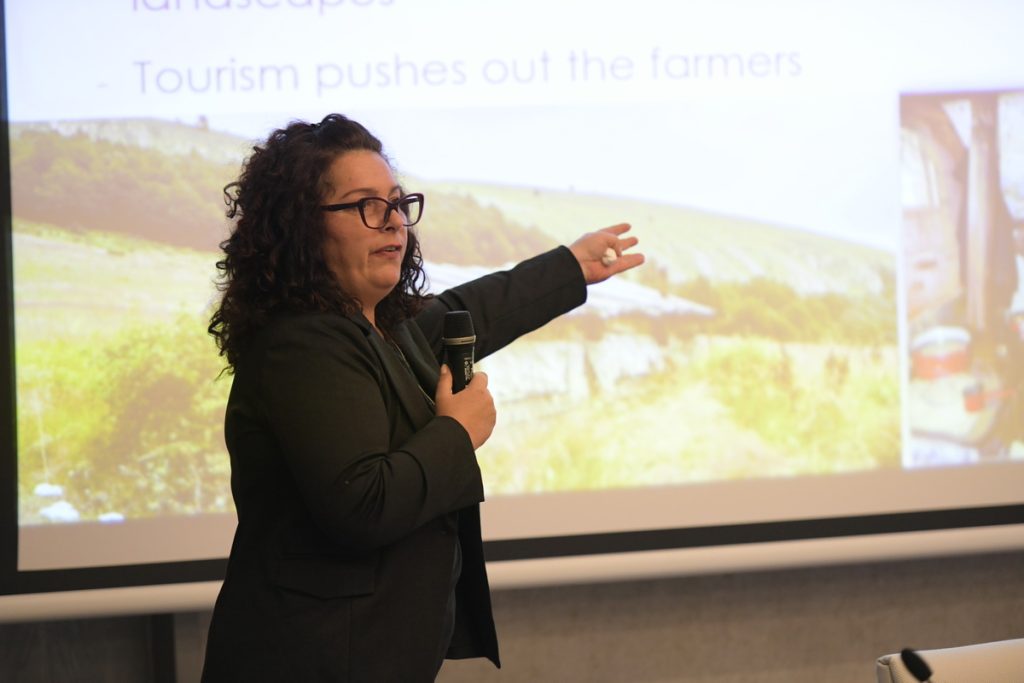
The presentation on Tourism in Montenegro: Katuns Unveiled was delivered by Jelena Krivcevic, the Managing Director of the so far one and only Regional Development Agency in the country. She explained the deep significance of katuns, traditional seasonal mountain settlements, in shaping Montenegro's culture and identity. Jelena highlighted the decline in active katun farming due to an aging population and unregulated construction without respect for the meaning of sustainability, spatial planning and impacts of climate change such as warmer winters.
Katuns are at core environmentally, socially, and economically successful sustainable development, by preserving nature with their traditional ecological practices and low carbon footprint, by promoting local culture, and generating income for communities. Challenges include rapid landscape degradation and diminishing youth involvement.
The vision of RDAs project achievements such as https://www.katunroads.me/en and https://www.ruralholiday.me/en is to establish katuns as a flagship model of sustainable tourism in Montenegro, focusing on protecting intangible cultural heritage and supporting local households to ensure long-term viability while expecting accountable national and local concepts of destination management to be introduced.
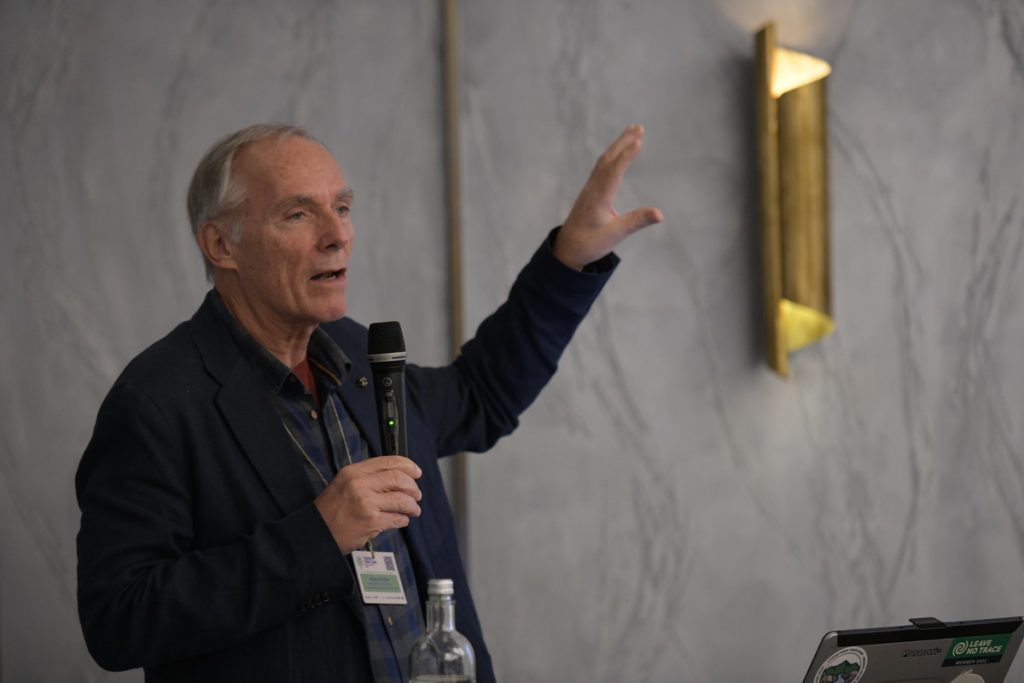
Klaus Ehrlich emphasised in his presentation about Rural Tourism from the European perspective its huge contribution through over 600,000 micro-enterprises and its significant role in generating income and employment in under-the-radar areas. He explained the sector's evolution, from early farm support initiatives in 1955 to its current prominence, especially post-COVID-19.
He addressed challenges such as climate change, even overtourism, and regulatory hurdles, while stressing the need for better destination management, skills development, and adaptive policies. Klaus highlighted sustainable practices, mindful travel, and heritage preservation as essential need trends. Best practices like Austria’s farm tourism and Lithuania’s rural tourism model, showed how local management and training drive success. He concluded by urging collaboration and proactive strategies for sustainable growth.
Bente Grimm, Head of Tourist Mobility Research at NIT – the Institute for Tourism Research in Northern Europe, presented on Tourist Mobility with Less Traffic – Good Solutions for Resident and Visitor Needs. This is obviously something that is badly needed in the Boka Bay area.
Key objectives for this topic include reducing arrivals by plane or car, increasing walking, biking, and public transport use, and promoting vehicle utilization and renewable energies.
Where benefits include fair access to attractions, improved quality of life, and increased local acceptance of tourism, challenges are equally present with regional settings, raising awareness, and developing specific mobility offers for tourists and workers.
Bente cited good practice examples including the Alpine Pearls initiative, Bad Hindelang’s EMMI-MOBIL, and Zell am See-Kaprun’s Mobility App. Her presentation stressed the need for a common vision, sector cooperation, and political will to implement sustainable mobility solutions, with mobility information provided by accommodations and tourist associations.
Her https://www.smarta-net.eu/ project can be of help also in the Western Balkans, as it aims to promote sustainable and resilient mobility connections between rural areas, within remote areas such as islands, and between remote rural areas (including isolated regions) and urban areas, taking into account the need to support ecotourism.
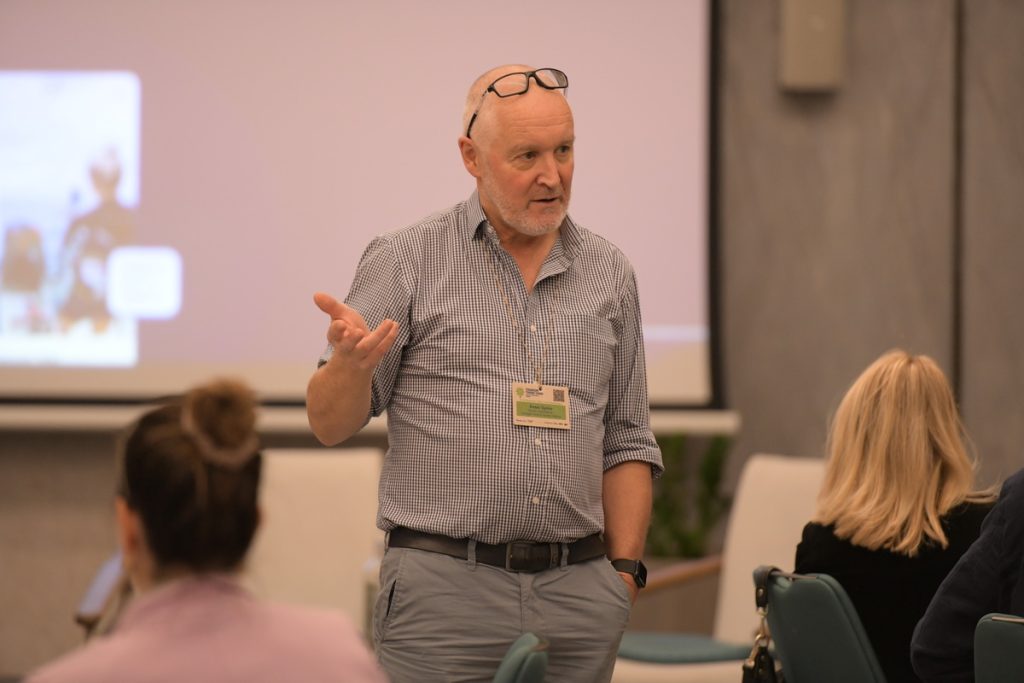
The presentation by Peter Syme (Partner, Tourpreneur, Strategic Travel & Tourism Advisor, Speaker, Travel Tech Advisor), From AI to Zen: Navigating the Tech Tsunami in Tourism's New Reality, delved into the integration of Artificial Intelligence (AI) in the tourism industry. He emphasised the rapid growth of AI and its potential to transform customer experiences, operational efficiency, and business growth.
The presentation outlined key principles for working with AI in tourism:
- Choose Work for AI: Identify tasks that require intelligence, are repetitive, and have explicit context.
- Understand and Document the Work: Clarify the processes to optimize AI performance.
- Optimise AI Performance: Ensure AI is used where it adds the most value, such as in background/batch processing, real-time interactions, and autonomous tasks.
Peter cautioned against common pitfalls, such as using AI for purely procedural, one-off, or high-sensitivity tasks. He advised prioritising tasks based on value, risk, and expected success. Finally Peter encouraged tourism leaders to ask not just what AI can do for their business, but also what AI cannot do, to ensure a balanced and effective strategy.
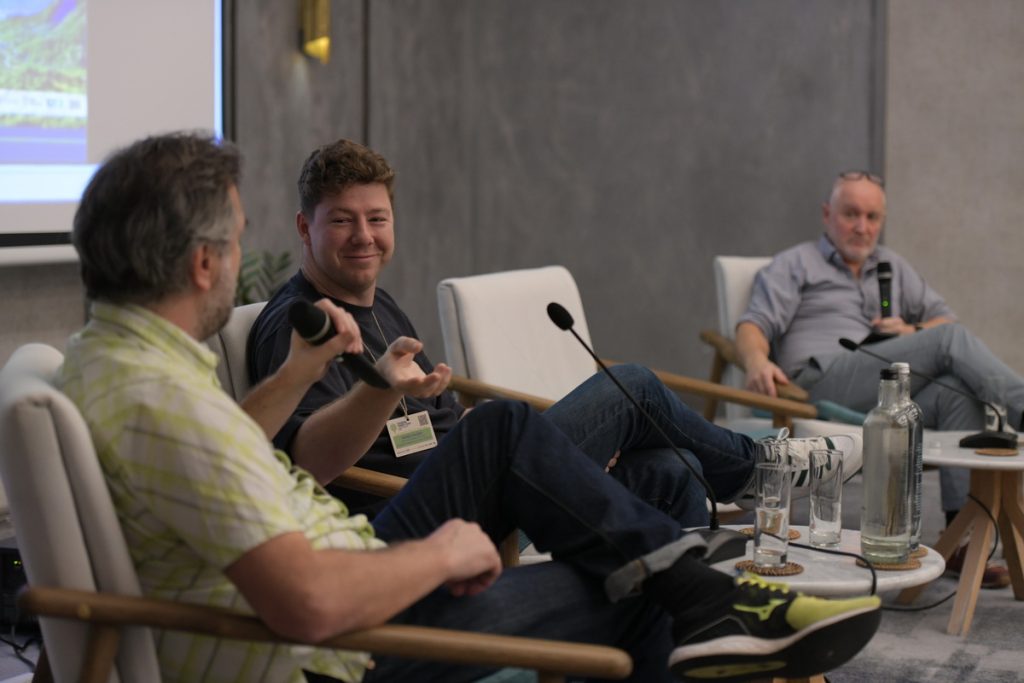
For the subsequent panel led by Peter Syme – Unlocking the Future of Tourism – Harnessing Technology and AI for Innovative Business Solutions! – two further speakers joined:
Matija Marijan – CEO & Co-Founder, Turneo.com introduced his company, highlighting his background in a family hospitality business and his experience in strategy consulting, including a role at Expedia.
Founded in 2022, Turneo is a plug-and-play solution for hotels and resorts to offer curated experiences that guests can seamlessly browse and book directly through a hotel's website. The company is developing artificial intelligence capabilities to offer personalised travel experiences through the hotels.
The system empowers staff to manage bookings effortlessly while giving managers advanced tools to understand, develop, and expand experience offerings. By integrating guest discovery, staff management and strategic insights, Turneo transforms how hotels can enhance their service and create more engaging, memorable stays for their guests.
Research indicates that guests booking experiences through Turneo tend to stay 40% longer, give 9% higher Google ratings, and spend 20% more daily. The platform is recognised for its innovation and quick implementation, making it appealing to forward-looking hotel groups.
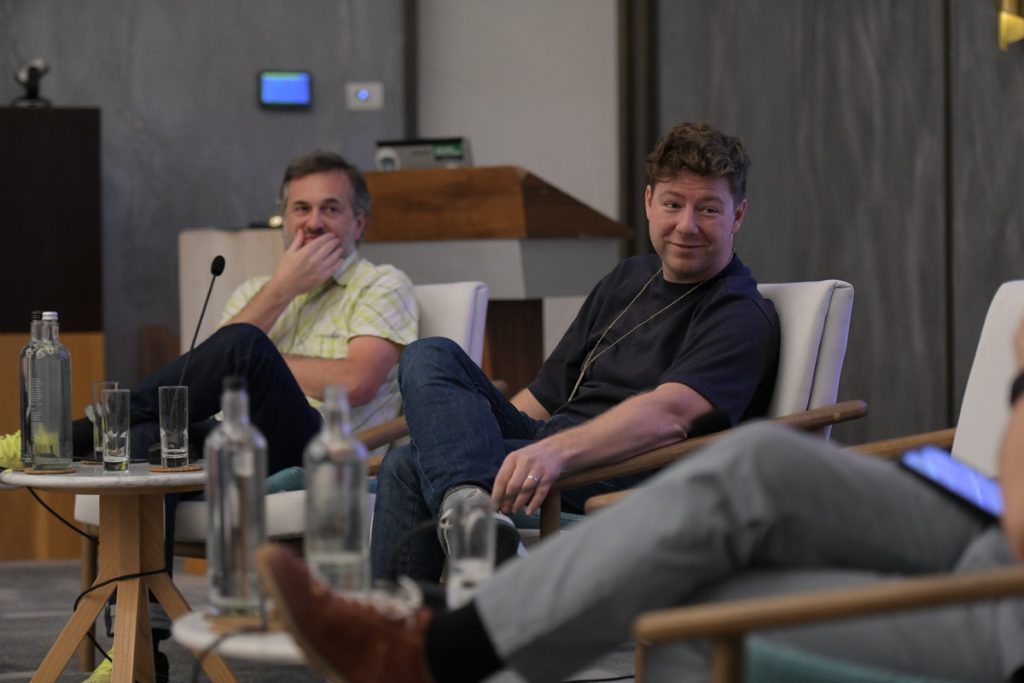
Virtyt Gacaferri, Owner & CEO, Balkan Natural Adventure, focused on the role of digital technologies and artificial intelligence in the company, emphasising a balanced approach to digitalisation. He outlined 15 innovative uses of Virtual Reality (VR) in tourism, which include virtual tours of landmarks, museum visits, language immersion programs, adventure sport simulations, and cultural re-enactments.
Virtyt advocated for strategic digital implementation, particularly for repetitive tasks like online booking and reservations. However, he warned against over-digitalisation that might compromise personal service quality. He recommended using technologies like GPS, digital maps, and AI tools such as ChatGPT for specific purposes like SEO and language improvement, while maintaining human interaction. Virtyt supported using AI in developing digital initiatives including a booking system linked to accounting, and implementing GPS trail descriptions.
Balkan Natural Adventure has introduced an innovative AI response machine “chatbot”. It is aimed at providing valuable information and assistance to hikers exploring the Peaks of the Balkans trail, and trained using extensive company knowledge gained from addressing countless questions posed by hikers over the years.
To use the chatbot, users must have an OpenAI account, specifically a Plus account in Chat GPT. It is not however intended to substitute for human judgment or professional help. Users are advised that the bot can make mistakes and the information from the trail is dynamic and cannot cover all aspects of the hike, encouraging users to contact the company directly for more detailed and personalized advice.
Throughout the panel, a core message was that digitalisation should be a supportive tool, used carefully and selectively to enhance, not replace, human-centric tourism experiences.
Peter reminded us of the collaborative role of AI, noting that AI works best with human oversight (“Be The Human In The Loop”). He suggested engaging AI as a tool that can assist in various roles, from intern to expert, but with the understanding that AI predicts rather than knows.
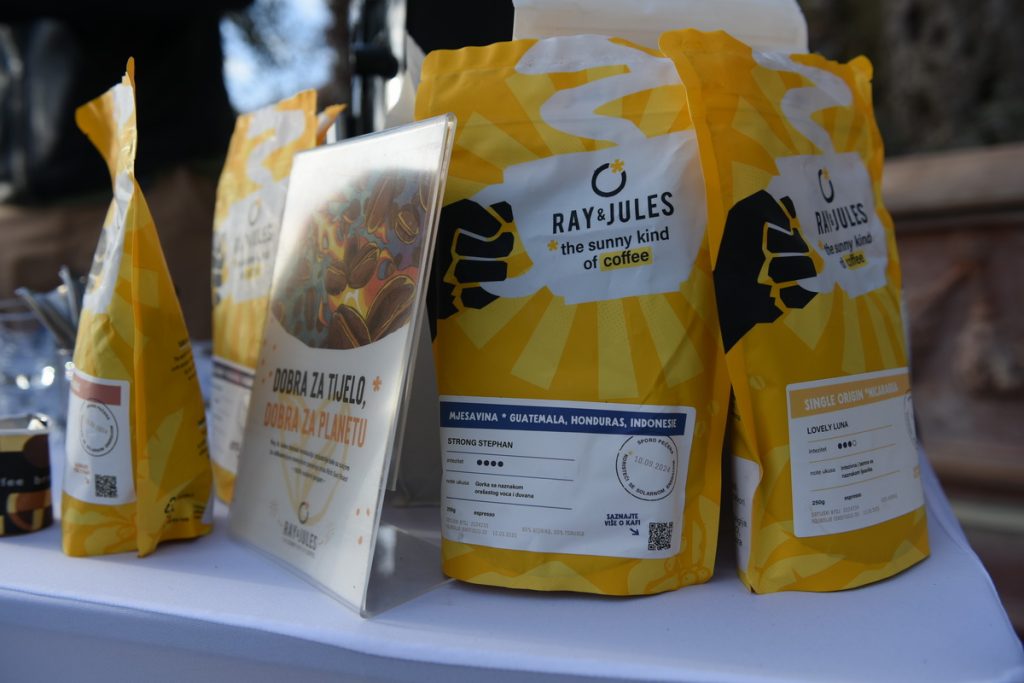
At the end of the day, a Mental Ecology session was run as an Interactive Eco Art Workshop. The visual artist Milena Živković combines art, culture, ecology and education as an introduction to creating together a social sculpture.
Mental Ecology is an ecological artistic project and movement that encourages the development of everyone's individual creative potential through the channel of contemporary art and applied ecology in everyday life. The project is based on the model of individual “micro actions” through a different form of education and creativity development, which simultaneously contributes to the protection of the environment.
Participants explored and discussed the connection between creativity, contemporary art, social responsibility and strength of an individual resulting in strengths as a community.
If our energy levels needed a boost, not only the super tasty coffee breaks and lunches served this purpose. Every morning we were invited to join #MorningMotivation hours, regular training offers with The Chedi team – be it a Bootcamp, Charity Run or an hour of Yoga – which meant a lovely regeneration on the 3rd morning.
Day 3 – 29th November, 2024 was our Local Discovery Day
We started off with a presentation by Suzanne Kamsteeg, Researcher and Volunteer/Intern Supervisor of Montenegro Dolphin Research (DMAD), offering us insights into the marine mammals in Boka Bay and beyond. We learned that the main dolphin threats are all caused by humans: Ingestion of plastic pollution, entanglement in nets, disorientation by noise pollution (speedboats, cruise ships!), boat strikes, and starvation through overfishing.
Since 2016, they have undertaken over 1,250 surveys, involving guest citizen science participants too. As a positive approach to reduce speedboating in the Boka area, the initiative in Kotor, https://kotor.travel/wild-life-conservation-tours/ – needs to be supported.
The presentation was followed by a day trip organised by Montenegro Destinations with Bruna, a Kotor-native English-speaking tour guide. We had a scenic drive to Kotor Old town, followed by a walking tour and lunch. Unfortunately the weather was too windy – the famous “bura” set in – to be able to take a boat ride from Perast to the Island of Our Lady of the Rocks, so instead we continued our local marine theme and visited Aquarium Boka, the center of research and biodiversity protection at the Adriatic – we recommended to start cooperation with DMAD.
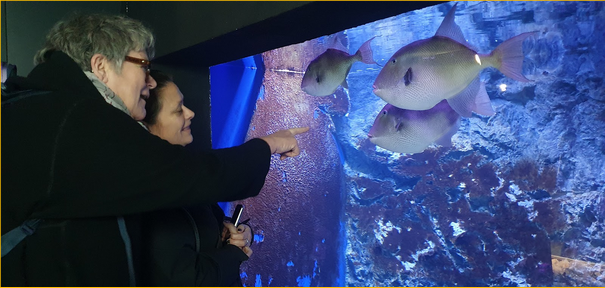
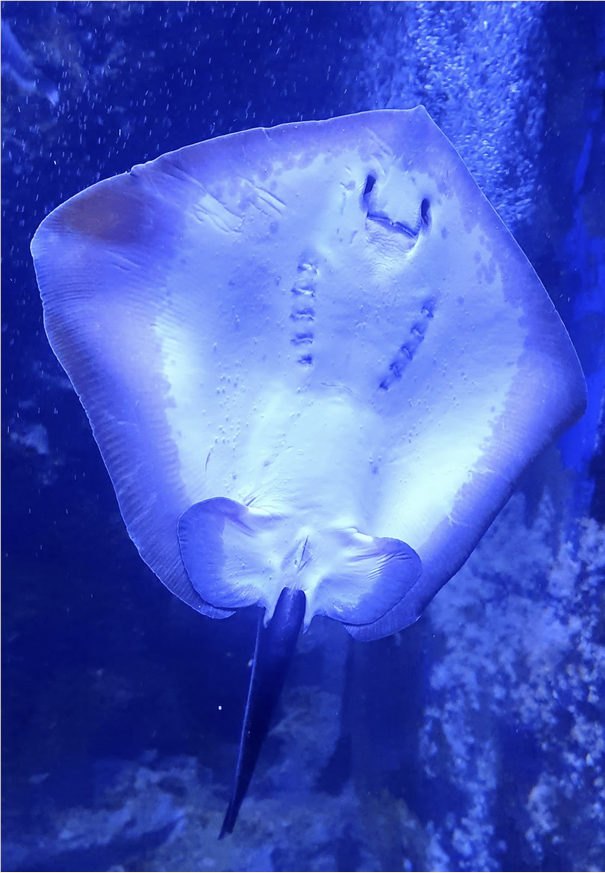
Thanks to our sponsors and supporters for a wonderfully enjoyable, interesting and engaging few days: The Municipality and the Tourism Organisation of Tivat, The Chedi Lustica Bay, the National Tourism of Montenegro, the Regional Development Agency of Bjelasica, Komovi and Prokletije, Montenegro Destinations, and Travel Massive.
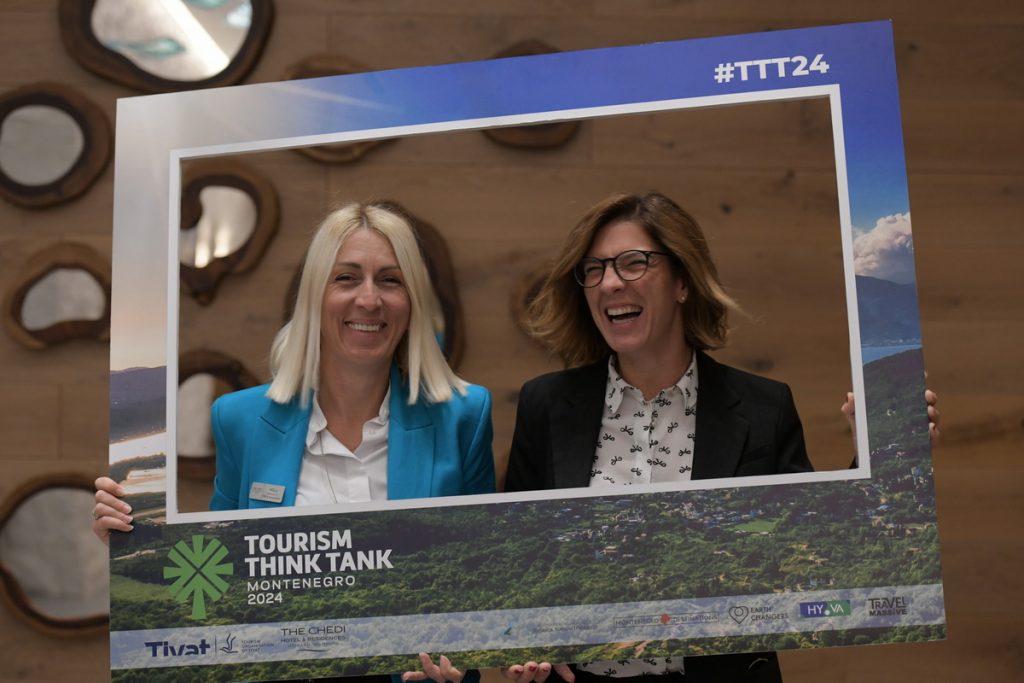
Thanks to our sponsors and supporters for a wonderfully enjoyable, interesting and engaging few days:
The Municipality and the Tourism Organisation of Tivat
The Chedi Lustica Bay,
the National Tourism of Montenegro,
the Regional Development Agency of Bjelasica, Komovi and Prokletije,
and Travel Massive



